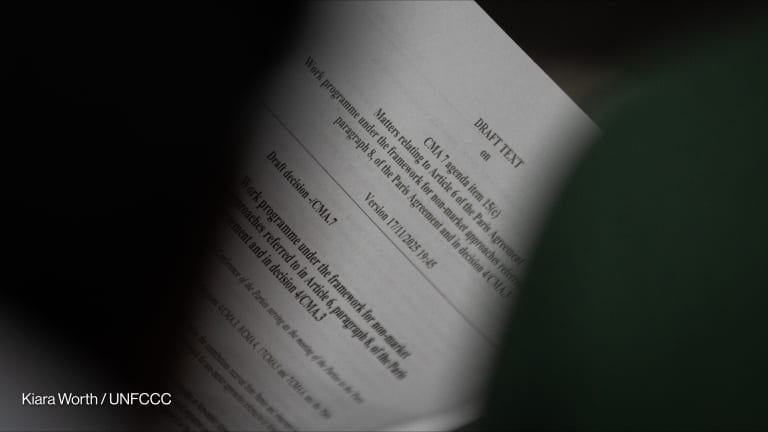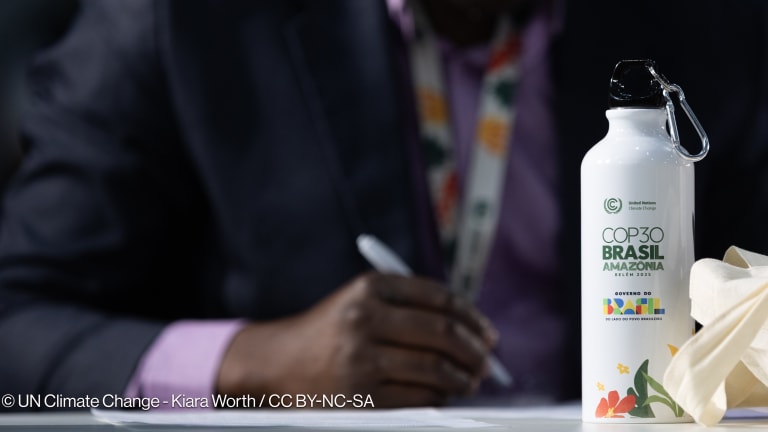By Jesse Chase-Lubitz
Representatives from thirteen countries stood on the stage of press conference room 1 this morning, holding hands and raising them in defiance of the latest draft text published by the Brazilian COP presidency.
The group represented a larger cohort of 24 low-to-middle-income and high-income countries that signed on to the Belém declaration on fossil fuels, a statement of intent calling for an accelerated process of transition away from fossil fuels at COP30 and beyond. They also announced the first international conference on the just transition away from fossil fuels, to be held in Colombia in April.
Printing articles to share with others is a breach of our terms and conditions and copyright policy. Please use the sharing options on the left side of the article. Devex Pro members may share up to 10 articles per month using the Pro share tool ( ).









